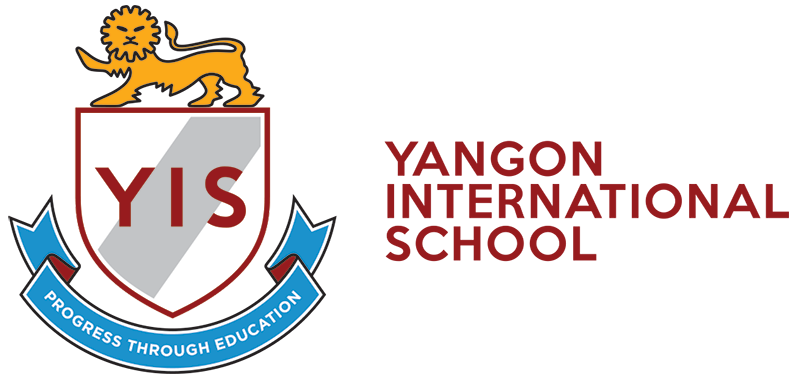IB Diploma Programme
What is IB Diploma Programme?
The IB Diploma Programme (DP) is an academically challenging and balanced programme of education with final examinations that prepares students, aged 16 to 19, for success at university and life beyond.
As an International Baccalaureate (IB) World School, Yangon International School offers the IB Diploma Programme (DP) in Grades 11 and 12. It has been designed to address the intellectual, social, emotional and physical well-being of students. The programme, has gained recognition and respect from the world’s leading universities.
A worldwide community of schools, educators and students with a shared vision and mission to empower young people with the skills, values and knowledge to create a better and more peaceful world.
Programmes encourage students across the world to become active, compassionate and lifelong learners who understand that other people, with their differences, can also be right.

What is the aim?
The aim of all IB programmes is to develop internationally minded people who recognize their common humanity and shared guardianship of the planet. Central to this aim is international-mindedness.
International-mindedness is a multi-faceted and complex concept that captures a way of thinking, being and acting that is characterized by an openness to the world and a recognition of our deep interconnectedness to others.
To be open to the world, we need to understand it. IB programmes therefore provide students with opportunities for sustained inquiry into a range of local and global issues and ideas. This willingness to see beyond immediate situations and boundaries.
Approaches to Teaching
Approaches to Learning
Thinking skills, areas such as critical thinking, creative thinking and ethical thinking
Research skills, including skills such as comparing, contrasting, validating and prioritizing information
Communication skills, including skills such as written and oral communication, effective listening, and formulating arguments
Social skills, including areas such as forming and maintaining positive relationships, listening skills, and conflict resolution
Self-management skills, including both organizational skills, such as managing time and tasks, and affective skills, such as managing state of mind and motivation.
The IB DP Curriculum Model

YIS Choices for the Diploma Programme 2021-2023
Group 1- Studies in Language & Literature
- English A: Language & Literature HL/SL
- Language A – Literature: Myanmar Studies SL
Group 2- Language Acquisition
- Mandarin Ab Initio (Beginning): SL
- Spanish Ab Initio (Beginning): SL
Group 3- Individuals & Societies
- Psychology (HL & SL)
- Economics (HL & SL)
Group 4 – Sciences
- Physics HL/SL
- Chemistry HL/SL
- Biology HL/SL
Group 5 – Mathematics
- Mathematics: Analysis & Approaches HL/SL
- Mathematics – Application & Interpretation
- HL/SL
Group 6 – The Arts
- Visual Arts HL/SL
The Choice of Subjects (for the DP)
ONE from EACH of the GROUPS 1 through 5.
- This ensures breadth of Knowledge and understanding in their best language
- Additional Language
- Individuals and Societies
- Experimental Sciences, and
- Mathematics
Students choose their SIXTH(6th) Subject in any of the following ways:
- ONE from Group 6 Arts, or
- A SECOND one from Groups 1 through 4
The IB Diploma requires three subjects to be taken at the Higher Level (HL) and three subjects to be taken at the Standard Level (SL)
Theory of Knowledge
Theory of knowledge (TOK) is assessed through an oral presentation and a 1,600 word essay.
It asks students to reflect on the nature of knowledge, and on how we know what we claim to know.
TOK is part of the International Baccalaureate® (IB) Diploma Programme (DP) core, and is mandatory for all students.
Extended Essay
The extended essay is a required component of the International Baccalaureate® (IB) Diploma Programme (DP).
It is an independent piece of research, culminating with a 4,000-word paper.
What is the significance of the extended essay?
The extended essay provides:
- practical preparation for undergraduate research
- an opportunity for students to investigate a topic of personal interest to them, which relates to one of the student’s six DP subjects, or takes the interdisciplinary approach of a World Studies extended essay.
Through the research process for the extended essay, students develop skills in:
- formulating an appropriate research question
- engaging in a personal exploration of the topic
- communicating ideas
- developing an argument.
Participation in this process develops the capacity to analyze, synthesize and evaluate knowledge.
CAS projects
What do CAS projects involve?
CAS requires students to take part in a range of experiences and at least one project. These should involve:
- real, purposeful activities, with significant outcomes
- personal challenge
- thoughtful consideration, such as planning, reviewing progress, reporting
- reflection on outcomes and personal learning
We don’t prescribe specific projects or activities to students. All students should be involved in activities they’ve initiated themselves. IB World Schools will then suggest particular projects.
Example of a creativity project
For a creativity project, a talented musician could learn a particularly difficult piece, or a different style of playing.
Example of an activity project
Activity projects do not have to be sports-related or competitive. A valuable activity project could help a student overcome a personal fear, such as rock climbing.
Example of a service project
Service projects must be beneficial for the community as well as providing a learning opportunity for the student.
The CAS project can address any single strand of CAS, or combine two or all three strands of creativity, activity and service.
IB and AP Have Different Program Goals
IB has more emphasis on writing and developing critical thinking skills—and not just on the exams themselves. The IB diploma also requires the extended essay, a long, college-style research paper. The IB program also has extracurricular requirements.
In contrast, the AP is a program focused on teaching students specific content and testing their knowledge on the exams. There is more multiple-choice and emphasis on meeting certain content goals.
